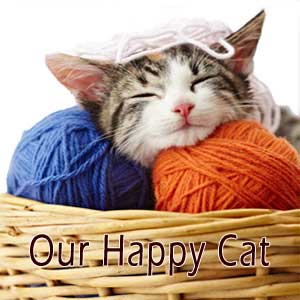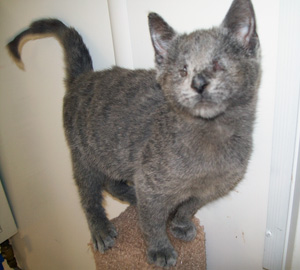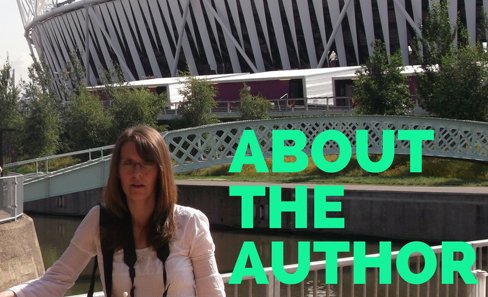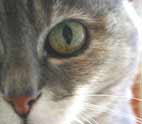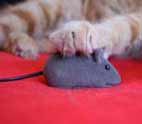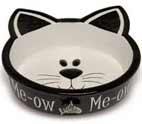Disabled Cats How To help Them Lead A Happy Cat Life
Disabled cats and other pets are more common than you may think. Modern vet treatment has enabled many more animals to recover from terrible accidents and illnesses.
But just like us humans sometimes our pets are left with a disability which requires some extra help from their owners.
Owning a cat with a disability does not mean having a pet which leads an unhappy unfulfilled life, which gives you years of worry and expense. In fact quite the opposite, cats with disabilities of all kinds can and do bring pleasure and joy to many and lead as close to a normal, happy life themselves as is possible.
Plus you have the added bonus of knowing that without your love and care your cat would have been put to sleep in less educated times and what a waste of a perfectly good life that would have been.
I myself have lived with cats who were partially sighted or deaf and to be honest many of my friends did not realise they were disabled, as they had adapted so well that they appeared just like all the other moggies in the street.
Helping a Disabled Cat
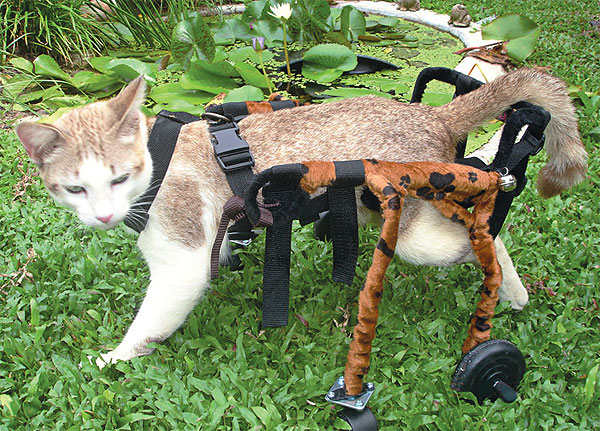
I am certainly no expert when it comes to caring for a cat with special needs and there are certainly other sites who are dedicated to the care and can I've far more in depth advice for disabled animals. However these pages are intended to give some basic advice and guidance to owners of some of the more common forms of disability experienced by our pets.
The disabilities covered on the following pages are:
Deaf Cats – This is not an uncommon problem especially in elderly cats. In general most cats can cope perfectly well without their hearing. t does however mean that they are more vulnerable outside of the home. because of this owners do have to make some changes to the cats environment to ensure their safety.These changes are discussed on my page about deaf cats.
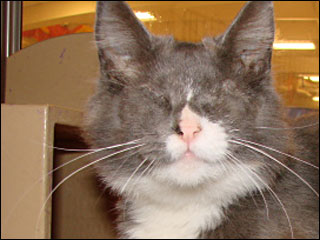
Blind Cats – Blindness is cats can be caused by many things, from injury, illness, birth defects or old age. Again most cats learn to adapt well but unfortunately not being able to see does make them vulnerable to traffic and other animals who may attack them. Living outside can not be an option for these cats and so making their inside world as stimulating as possible is the owners main concern.
My page about blind cats will give some ideas and tips on how to ensure that your non sighted cat still leads a full and active life.
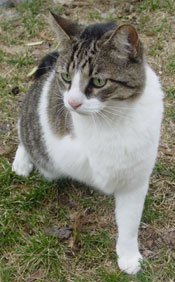
Three legged cats – Or for that matter cats with multiple missing limbs can still lead a full and active life, It just may be a little different from the norm.
Cats with amputated limbs or paralysis will suffer many difficulties and problems whilst adjusting to their new situation in life. This can seem very distressing for both the owner and the cat when first encountered, but cats are incredible adaptable. Find out how you can help your cat through the difficulties.
Arthritis - As cats get older they too can suffer from stiff joints and tender limbs. getting around can become more and more difficult and this can lead to other problems such as incontinence.
Luckily these days there are treatments available to help cats through this challenging period in their lives. See my page for more information.
Disabled cats are no longer faced with a short difficult life as they once were. All they need is someone who is prepared to perhaps give that little bit more time and effort to them and they will, like any other cat give back love and joy.
A Handicapped Cat Story With A Happy Ending
Back to the top of this disabled cats page
